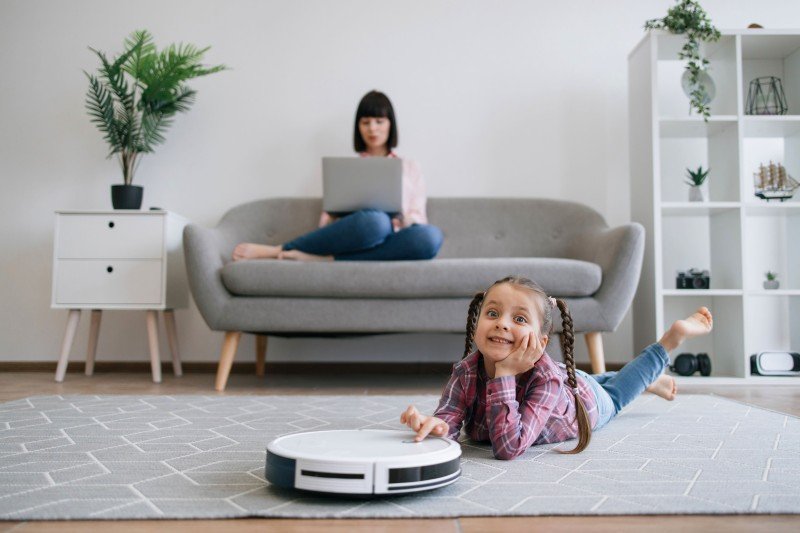Robotic Vacuum Cleaner Comparison: The Future of Home Cleaning
In recent years, robotic vacuum have actually transformed the way we maintain cleanliness in our homes. With advancements in innovation and the incorporation of expert system, these devices have developed from mere novelty items to important family devices. This post provides an extensive comparison of some of the leading robotic vacuum cleaners on the marketplace, assisting customers make notified choices when choosing a design that matches their needs.
Understanding Robotic Vacuum Cleaners
Robotic vacuum cleaners are autonomous devices created to tidy floorings automatically. Equipped with sensors, they browse around challenges and adjust their cleaning paths for maximum effectiveness. The key functions that distinguish various models include suction power, battery life, app connection, navigation technology, and price.
Secret Features to Consider
When comparing robotic vacuum cleaners, possible purchasers need to take into account the following elements:
- Suction Power: Measured in Pascals (Pa), suction power figures out the effectiveness of getting dirt and debris.
- Battery Life: The length of time a vacuum can operate before requiring a recharge considerably impacts its cleaning efficiency.
- Navigation Technology: Models might use easy random navigation or sophisticated mapping innovations (like LIDAR) that allow them to develop a map of the home.
- Smart Features: Connectivity to mobile phone apps or smart home systems can boost usability and control.
- Filter Type: HEPA filters are suggested for allergic reaction patients, as they trap irritants and improve air quality.
Comparison of Top Robotic Vacuum Cleaners
Below is a comparison table of some of the best robotic vacuum offered in 2023:
| Model | Suction Power (Pa) | Battery Life (minutes) | Navigation Technology | Smart Features | Price (GBP) |
|---|---|---|---|---|---|
| iRobot Roomba i7+ | 1700 | 75 | Smart mapping | App control, voice command | ₤ 949 |
| Roborock S7 | 2500 | 180 | LIDAR | App control, multi-floor | ₤ 649 |
| Neato D7 | 2000 | 120 | LIDAR | App control, zone cleaning | ₤ 599 |
| Ecovacs Deebot T10 | 3000 | 150 | Smart mapping | App control, room detection | ₤ 799 |
| Shark IQ Robot | 1200 | 90 | Random | App control, self-emptying | ₤ 399 |
Explanation of the Table
- iRobot Roomba i7+: Known for its robust cleaning capability, it features smart mapping technology that permits it to designate particular areas for cleaning. Its self-emptying feature is a plus for convenience.
- Roborock S7: This design masters suction power and battery life, making it perfect for bigger homes. Its LIDAR innovation helps develop an effective cleaning path, and it can vacuum and mop concurrently.
- Neato D7: The D-shape design enables much better corner cleaning, and it includes strong suction power. Its LIDAR navigation enables it to draw up cleaning areas precisely.
- Ecovacs Deebot T10: Boasting the highest suction power and advanced navigation, this design can handle several floorings efficiently. robot vacuum cleaner quiet 's a versatile option for homes with differing floor types.
- Shark IQ Robot: An economical choice that still provides smart functions. Its self-emptying capability and app combination make it a practical option for those searching for a solid cleaning companion without breaking the bank.
Advantages of Robotic Vacuum Cleaners
Robotic vacuum cleaners provide numerous advantages that add to their rising popularity among consumers:
- Time-Saving: Automated cleaning allows users to free up important time that can be invested in other activities.
- Convenience: Many models can be scheduled via apps to clean up at specific times, decreasing manual effort.
- Availability: They can reach under furniture and in tight spaces where traditional vacuums might have a hard time.
- Daily Maintenance: Regular usage of robotic vacuums can assist maintain a regularly tidy environment, promoting much better overall home hygiene.
Frequently Asked Questions About Robotic Vacuum Cleaners
1. How typically should I run my robotic vacuum?
It is suggested to run the robotic vacuum a minimum of 2-3 times a week to preserve cleanliness, though everyday usage can be useful, specifically in homes with animals or high foot traffic.
2. Do robotic vacuums deal with carpets?
Yes, many robotic vacuums are developed to work on carpets, however effectiveness might vary based upon the design's suction power and brush type. Look for models specifically pointed out as efficient for carpets.
3. Can robotic vacuums tidy pet hair?
Most robotic vacuums can efficiently get pet hair, however those with strong suction and tangle-free brush styles are especially appropriate for this job.
4. How do I maintain my robotic vacuum?
Regular upkeep consists of cleaning the brushes and sensors, clearing the dustbin, and sometimes changing filters to guarantee optimum efficiency.
5. Are robotic vacuums worth the financial investment?
While they tend to be more expensive than conventional vacuums, the benefit, performance, and time-saving aspects make them a worthy financial investment for lots of households.
The market for robotic vacuum cleaners continues to broaden as technology progresses, using consumers a variety of alternatives to suit various cleaning needs and budget plans. By thoroughly considering features such as suction power, battery life, and smart abilities, users can select a design that lines up with their way of life. Whether for benefit, ease of use, or exceptional cleaning efficiency, robotic vacuums are certainly improving the future of home cleaning.

